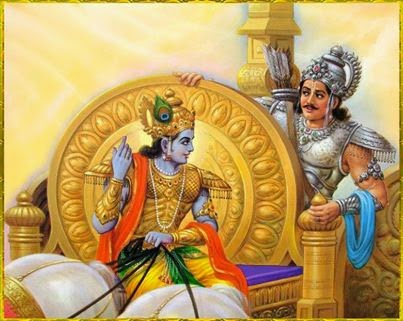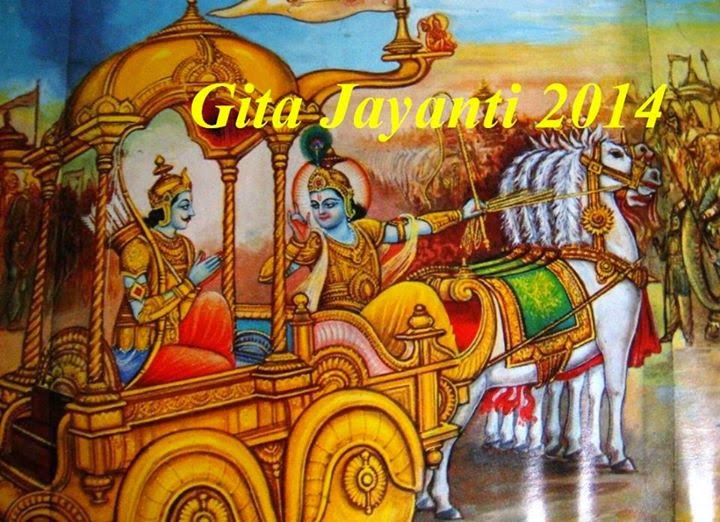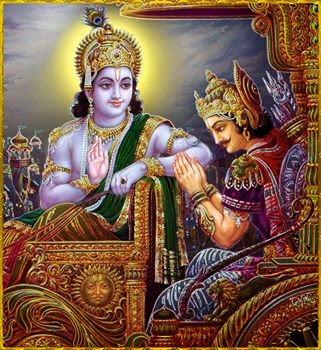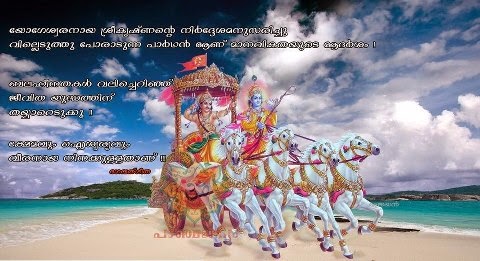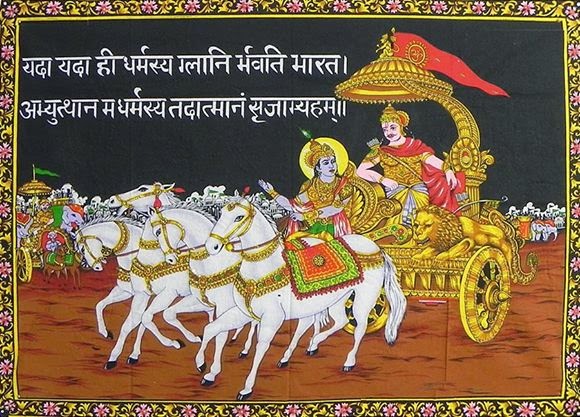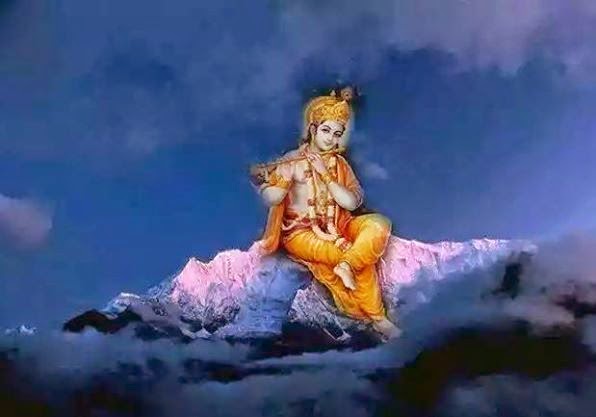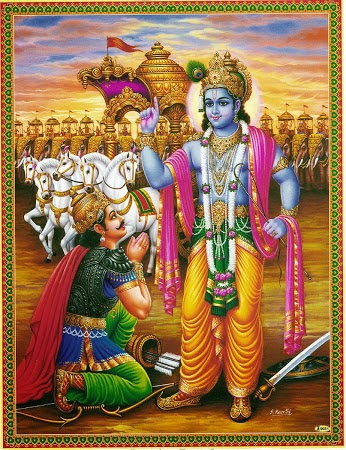Gita : Ch-2. Slo-64.

Srimad Bhagavad-Gita : Chapter-2. ( Samkya-yogam ) Slokam-64. (One who has the self-control on his atma, then is free from like/desire/attachment/ dislike/hatred/detachment, next has his actions/activities under his control; with his sense-organs ....even though enjoying /experiencing sensuous objects, attains, the joy of peace ( blessing of the Lord ). Ragadveshaviyuktaistu vishayanindriyaiscaran, Atmavasaisyairvidheyatma prasadamadhigacchati. vidheyatma = one who has the self- control ( on his atma ); ragadveshaviyuktah = and who is free from like/desire/attachment/ dislike/hatred/detachment; atmavasaiyah = and who has the actions/activities under his control over; indriyaih = (his ) Sense-organs ( with them ); vishayanindriyaiscaran tu = ( but ) Even though enjoying /experiencing sensuous
%2B(2).jpg)
